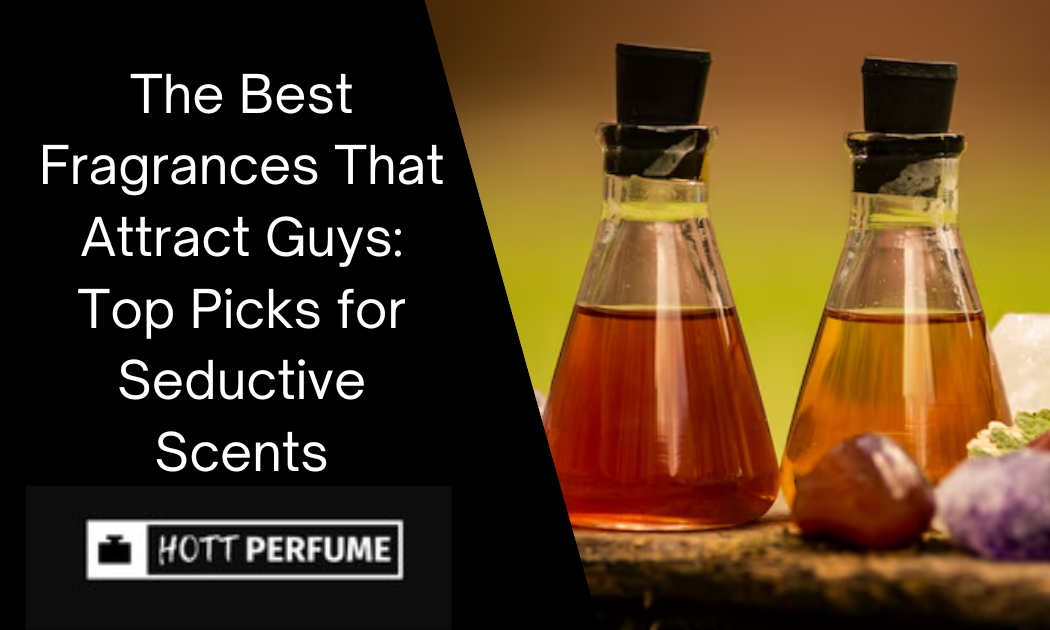Fragrance Oil vs. Perfume: Which Scent is Right for You?
Posted by Tina Wilson on Mar 17th 2025

Optimize Your Fragrance Experience
Selecting the right type of fragrance is essential in enhancing your scent experience, as both fragrance oils and traditional perfumes offer distinct advantages. Understanding their essential differences will help you determine which option aligns best with your lifestyle, skin type, allergies, and scent preferences.
-
Fragrance oils are highly concentrated, providing a long-lasting and skin-friendly scent with minimal alcohol content.
-
Traditional perfumes offer varied concentrations, from eau de parfum to eau de toilette, delivering a stronger scent projection with more noticeable sillage.
This guide will break down the key characteristics of each perfume making both options, helping you choose the best fragrance that complements your personal style and daily routine.
What Makes These Scent Options Unique?
Fragrance Oils – Concentrated Scent Excellence
Fragrance oils provide a highly concentrated aromatic experience, making them an excellent choice for individuals who prefer subtle, long-lasting scents with a personalized intensity. Unlike traditional alcohol-based perfumes, fragrance oils do not evaporate quickly, allowing the scent of perfume oils to linger on the skin for extended periods.
Key benefits of Fragrance Oils:
-
Higher Concentration of Scent Compounds
Fragrance oils contain a higher percentage of aromatic ingredients, making them more potent and long-lasting compared to perfumes. -
Versatile Applications Beyond Personal Use
These oils can be used in candles, diffusers, skincare products, and body oils, making them multi-purpose. -
Customizable Intensity Levels
Since they do not contain alcohol, fragrance oils can be applied in small amounts and layered to control the strength and longevity of the scent. -
Longer-Lasting Scent Potential
Due to their slow evaporation rate, fragrance oils cling to the skin and last throughout the day, making them ideal for those who prefer subtle yet enduring fragrances.
Whether you want a scent that lasts longer, a mixture of skin-friendly alternative natural oils, or a versatile option beyond personal fragrance, fragrance oils offer a unique and effective way to enjoy a signature scent.
Fragrance vs Perfume: Understanding the Key Differences
Traditional Perfumes – Complex Aromatic Compositions
Traditional perfumes are meticulously crafted creations in bottles that provide a carefully balanced and sophisticated formula. They are designed to offer beautifully composed scents that evolve over time, delivering a dynamic and multi-layered fragrance experience. Each perfume is a work of art, blending both natural ingredients and synthetic ingredients to create a harmonious and enduring aroma.
Key benefits of Traditional Perfumes:
-
Longevity: Traditional perfumes are crafted with high concentrations of fragrance oils, ensuring the scent lasts for hours or even an entire day.
-
Classic application methods: Traditional perfumes are often applied using methods like dabbing or spraying on pulse points, allowing the fragrance to interact with body heat and develop uniquely.
-
Evolving scent stages throughout wear: Traditional perfumes are designed with top, middle, and base notes, creating a multi-layered experience that changes over time.
-
Professional fragrance compositions: Perfumes are created by master perfumers who blend natural and synthetic ingredients to achieve complex, harmonious scents.
-
Established fragrance families and traditions: Traditional perfumes are rooted in well-defined fragrance families such as floral, oriental, woody, and fresh, each with its own history and cultural significance.
Fragrance Oil vs. Perfume: What’s the Difference?
Composition
-
Fragrance Oils: Concentrated oils that primarily consist of aroma chemicals and essential oils. They are highly concentrated and often diluted with carrier oils to make them suitable for skin application.
-
Perfumes: A mixture of fragrance oils, alcohol, and water. The alcohol acts as a solvent, helping to disperse the fragrance evenly and evaporate upon application, leaving the scent on the skin.
Application
-
Fragrance Oils: Typically applied using a rollerball or dropper, allowing for precise control over the amount and placement of the oil. This method is ideal for targeting specific areas like pulse points.
-
Perfumes: Usually applied by spraying onto the skin or clothing. The spray mechanism ensures an even distribution of the fragrance, creating a more diffused scent.
Longevity
-
Fragrance Oils: Known for their long-lasting nature, fragrance oils can often last 8+ hours or even all day due to their high concentration and oil-based formulation, which clings to the skin.
-
Perfumes: Longevity varies depending on the concentration. Eau de Parfum typically lasts 6-8 hours, while Eau de Toilette has a lighter concentration and may last for a shorter duration.
Skin Sensitivity
-
Fragrance Oils: Often better suited for sensitive skin, especially when formulated with natural carrier oils like jojoba or almond oil. They lack alcohol, which can be a common irritant.
-
Perfumes: The alcohol content in perfumes can sometimes cause irritation or dryness for individuals with sensitive skin, though modern formulations often include soothing ingredients to mitigate this.
In essence and summary, fragrance oils and perfumes differ in their composition, application methods, quality, longevity, and suitability for sensitive skin. Fragrance oils offer a concentrated, long-lasting, and skin-friendly option, while perfumes provide a more traditional, diffused, and versatile fragrance experience.
What Experienced Users Say
Fragrance Oil Enthusiasts Love:
-
Longer-lasting scent: Fragrance oils are praised for their ability to stay on the skin for extended periods, often lasting 8+ hours or even all day.
-
Precise application control: The use of rollerballs or droppers allows users to apply the oil exactly where they want it, ensuring a customized and targeted fragrance experience.
-
Less skin irritation potential: Fragrance oils, especially those blended with natural carrier oils, are often gentler on sensitive skin compared to alcohol-based perfumes.
Traditional Perfume Users Love:
-
Classic application experience: The ritual of spritzing perfume onto the skin or clothing is a timeless and luxurious experience that many users cherish.
-
Complex scent development: Traditional perfumes are celebrated for their multi-layered scent profiles, which evolve through top, middle, and base notes, creating a dynamic and sophisticated fragrance journey.
-
Established fragrance traditions: Perfume users appreciate the rich history and cultural significance behind classic fragrance families, such as floral, oriental, and woody scents, which have been perfected over centuries.
In summary, fragrance oil enthusiasts value the longevity, precision, and skin-friendly nature of essential oils, while traditional perfume users are drawn to the classic application, evolving scent complexity, and the heritage of established fragrance traditions.
The Best Fragrances and Perfumes: A Buying Guide
Usage Requirements Overview
The way you apply and use fragrance oils and traditional perfumes plays a significant role in how the scent develops and lasts. While both chemicals require proper storage away from heat and light to maintain their potency, their application methods, quality and versatility differ.
Fragrance Oils:
Fragrance oils provide highly concentrated scent experiences and these oils can be used in multiple ways beyond personal fragrance.
Application Methods:
-
Applied directly to pulse points (wrists, neck, behind the ears) for a long-lasting scent
-
Can be mixed into lotions, bath oils, and skincare products for customized fragrance layering
-
Used in diffusers, candles, and bath products to scent living spaces
Best for:
-
Those who prefer customizable intensity
-
Individuals looking for versatile fragrance applications beyond just personal scent
Traditional Perfumes:
Traditional perfumes are crafted for personal wear, with synthetic and natural materials, and a focus on scent projection and evolution.
Application Methods:
-
Sprayed onto pulse points (wrists, neck, behind the ears) for optimal scent diffusion
-
Applied to clothing for extended wear, though some fabrics may hold scents differently
-
Sprayed into the air to walk through for a light, even fragrance distribution
Best for:
-
Those who prefer a classic, time-tested scent application
-
Users who enjoy the evolving scent experience of traditional perfume
Regardless of which option you choose, proper storage is essential. Keeping fragrance oils and perfumes in a cool, dark place away from direct sunlight and heat ensures their longevity and maintains their full essential oils and scent integrity.
Which Scent Option is Right for You?
Choose Fragrance Oils if you want:
-
Maximum longevity from your scent: Fragrance oils are highly concentrated and can last 8+ hours or even all day, making them ideal for those who want a long-lasting fragrance.
-
Versatility in application: With options like rollerballs or droppers, fragrance oils allow for precise and customizable application, perfect for targeting specific areas.
-
Potentially fewer skin irritants: Fragrance oils, especially those blended with natural carrier oils, are often gentler on sensitive skin compared to alcohol-based perfumes.
Choose Traditional Perfumes if you want:
-
Classic fragrance experience: Traditional perfumes offer a timeless and luxurious application method, often involving spritzing onto the skin or clothing.
-
Evolving scent profile throughout the day: Perfumes are designed with top, middle, and base notes, creating a dynamic and multi-layered scent experience that changes over time.
-
Established fragrance compositions: Traditional perfumes are rooted in well-defined fragrance families, such as floral, oriental, and woody, each with its own history and cultural significance.
Both synthetic fragrance oils and traditional perfumes can provide wonderful scent experiences. If you prefer a concentrated, long-lasting fragrance that’s versatile and skin-friendly, fragrance oils are an excellent choice. If you value a classic smell and application method with complex scent development and a connection to fragrance traditions, traditional perfumes are the better option.
Note: Consider your skin sensitivity and desired application method when making your selection!


